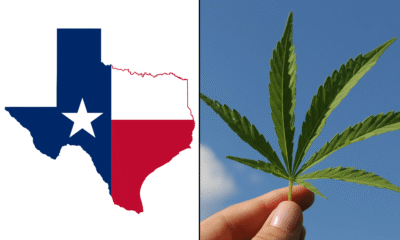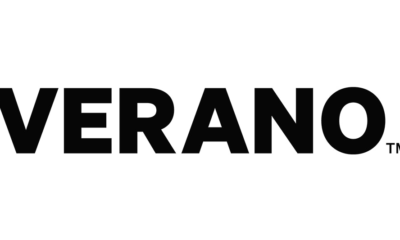Business
Michigan bans coconut oil in cannabis vapes
Published
1 year agoon

This story was republished with permission from Crain’s Detroit and written by Dustin Walsh.
The Michigan Cannabis Regulatory Agency is moving to ban a potentially dangerous oil from use in the state’s cannabis industry.
On Oct. 1, the agency will require testing for medium-chain triglyceride, or MCT oil, on all inhalation products, such as vape pens, after growing evidence suggests the oil may pose health risks when vaporized or aerosolized into the lungs.
MCT oil is most commonly made from coconut oil, and, to a lesser extent, palm kernel oil — both of which are approved for consumption by the U.S. Food and Drug Administration. But new research shows smoking the oils could have adverse effects on lung function, much like Vitamin E acetate, a previous diluting agent the industry was using prior the state banning it in 2019.
“From a public health and safety standpoint, the potential for adverse effects with MCT oil underscore the importance of adherence to safety guidelines in product development,” said CRA Executive Director Brian Hanna, in a statement. “Companies participating in Michigan’s cannabis industry must prioritize respiratory safety when formulating or using inhalable products, opting for ingredients that have been thoroughly evaluated for their compatibility with lung health. I look forward to when our new state reference laboratory is up and running, advancing the health and safety of Michigan cannabis consumers with advanced testing for diluents.”
Michigan follows other cannabis legal states, like Colorado, in banning the use of MCT in distillates for vapes and other inhalable products.
Jonathan Kane, chief scientific officer for Lansing-based processor Lion Labs, said competitors use MCT oil in their distillate to increase margins by lowering the amount of distillate, which is created by dissolving expensively grown cannabis.
“Producers who use MCT oil in their products are essentially creating more oil by combining this non-cannabis additive to distillate, which drives their overall cost down resulting in greater profit.”
The move from the state’s regulatory body comes amid growing concern raised by one of the state’s cannabis testing labs, Infinite Chemical Analysis Labs in Ann Arbor. Josh Swider, CEO of the California-based lab company, has been making noise in the industry for months; alleging many of the state’s top vape pen makers were using MCT oil to “thin” or dilute the cannabis oil to boost their profit margins.
“Studies show you should not be inhaling MCT oil,” Swider told Crain’s. “it’s a public safety issue. As a scientist I came into this industry because I believe in cannabis and public safety is why I am here. Safety testing facilities in Michigan work for the public and not the brands because they are the gatekeepers of the safety of the public. We have been working on this project for two years and no one has taken action. I truly think the public has the right to know what they are putting their bodies through.”
Under rules set forth by the CRA, cannabis companies are required to list the ingredients, including MCT oil, on their packaging but most did not.
Swider’s company has tested more than 120 vape pens that were purchased off of stores shelves by three different organizations in the industry to determine whether some of the best-selling products contained MCT oil. Those organizations, two of which are operators in the industry, asked not to be named. Infinite Chemical ran new tests on the products at Crain’s request earlier this month.
Of the 14 samples from Mt. Morris-based Sky Labs performed by Infinite Labs, two of them tested positive for containing MCT oil.
Denise Pollicella, attorney for Sky Labs, insists Sky Labs did not know their products contained MCT oil because the processor does not cultivate cannabis, but buys cannabis distillate for its vape brand Bossy from other cultivators.
“What I can tell you is that Sky Labs does not produce its own oil, so the distillate containing MCT oil was not produced by Sky Labs and it would have been sourced from elsewhere,” Pollicella wrote in an email to Crain’s. “I am honestly much less concerned about products manufactured in a licensed and regulated facility than I am about all of the out-of-state hemp derived CBD and THCA crap that is on party store and gas station shelves right now. That stuff is full of pesticides and who knows what else and is not regulated or tested in any way.”
Sky Labs has been on the outs with the state’s regulators before. In July last year, the CRA issued a recall of Sky Labs’ Flight brand vapes for failing compliance testing and potentially using illicit market product. In lab testing, Sky Labs’ recalled vape cartridge concentrates were determined to contain chemical residue of several banned substances, including the insecticide bifenthri and the fungicide myclobutanil. In a negotiated settlement, Sky Labs surrendered its medical marijuana processing license and was fined $100,000.
But Sky Labs isn’t alone, several other processors failed MCT oil testing performed by Infinite Chemical, including Chicago-based, publicly-traded multistate operator Cresco Labs Inc., West Bloomfield-based Pure X, MKX Oil Co., Michigan Investments 10’s Muha Meds brand and a handful of other smaller brands.
None of the other operators responded to inquiries by Crain’s about the use of MCT oil.
Some of the operators are among the top selling vape brands in the state, according to data from cannabis market research firm Headset.
MKX Oil, for instance, sold nearly $14.7 million in vape pens in 2024 through the middle of June, according to headset. Muha Meds sold nearly $8 million worth of vapes. Bossy has only sold $1.64 million.
But those vape brands retail well below the state average price of $18.25 per vape cartridge. Sky Labs’ Bossy brand average $7.44 per cartridge, for instance.
“When you see a gram vape pen for $6, those are the vapes that tend to show up in testing more,” Swider said.

Author: mscannabiz.com
MScannaBIZ for all you Mississippi Cannabis News and Information.
You may like
-


California reaps over $250 million from 2nd Quarter cannabis sales
-


Meet the World’s First Cannabis Rugby Team: Crewmen 7’s Tackle Stigma Head-On
-


Texas Supreme Court Refuses To Take Up Marijuana Case Challenging State’s Rejection Of Local Decriminalization Law
-


California Passes Bill to Ban Intoxicating Hemp Products Outside Cannabis Market
-


Pending Federal Hemp Legislation Could Reshape The Legal Industry By Banning Some Products (Op-Ed)
-


Verano Proposes to Redomicile Parent Company From British Columbia to Nevada
Business
Nebraska medical cannabis regulations stall in legislative committee
Published
5 months agoon
April 18, 2025

A Nebraska legislative committee voted 5-3 against advancing a bill designed to implement and regulate the state’s medical cannabis program, leaving legislators and advocates searching for alternative paths forward, according to the Nebraska Examiner.
The General Affairs Committee rejected Legislative Bill 677, sponsored by State Sen. Ben Hansen of Blair, during a Thursday vote where committee members declined to offer amendments to the legislation, the publication reported.
“I don’t want to shut all the doors right now, but some doors are closing, and they’re closing fast, and so we have to act,” Hansen told reporters after the vote, according to the Examiner.
Nebraska voters approved medical cannabis in November 2024, with residents legally permitted to possess up to 5 ounces with a healthcare practitioner’s recommendation since mid-December. However, the regulatory commission created by the ballot initiative lacks effective power and funding to regulate the industry.
Hansen described his legislation as “a must” for 2025 to prevent a “Wild West” scenario in the state’s cannabis market. The bill would have expanded regulatory structure through the Nebraska Medical Cannabis Commission and extended deadlines for regulations and licensing to allow more time for implementation, the Examiner noted.
Committee disagreements centered on proposed restrictions. A committee amendment would have prohibited smoking cannabis and the sale of flower or bud products while limiting qualified healthcare practitioners to physicians, osteopathic physicians, physician assistants or nurse practitioners who had treated patients for at least six months.
The amendment also would have limited qualifying conditions to 15 specific ailments including cancer, epilepsy, HIV/AIDS, and chronic pain lasting longer than six months.
State Sen. Bob Andersen of Sarpy County opposed allowing vaping due to concerns about youth drug use, while committee chair Rick Holdcroft suggested selling cannabis flower would be “a gateway toward recreational marijuana,” a claim Hansen “heavily disputed,” according to the Examiner.
Hansen now faces a difficult path forward, requiring at least 25 votes to pull the bill from committee and then needing 33 senators to advance it across three rounds of debate, regardless of filibuster attempts.
Crista Eggers, executive director of Nebraskans for Medical Marijuana, remained optimistic despite the setback.
“This will not be the end,” Eggers said, according to the outlet. “Giving up has never been an option. Being silenced has never been an option. It’s not over. It’s not done.”
The legislative impasse is further complicated by ongoing litigation. Former state senator John Kuehn has filed two lawsuits challenging the voter-approved provisions, with one appeal pending before the Nebraska Supreme Court. The state’s Attorney General is also trying to do something about the hemp question, akin to other states across the country.

Author: mscannabiz.com
MScannaBIZ for all you Mississippi Cannabis News and Information.
Business
One of Las Vegas’ cannabis lounges closes its doors
Published
5 months agoon
April 18, 2025

Nevada’s cannabis lounge experiment faces some expected growing pains, with one of just two state-licensed venues closing its doors after barely a year in business, according to the Las Vegas Weekly.
“The regulatory framework, compliance costs and product limitations just don’t support a sustainable business model,” said Thrive Cannabis managing partner Mitch Britten, who plans to convert the space into an event venue until regulations loosen up.
The closure leaves Planet 13’s Dazed Consumption Lounge as the only operational state-regulated cannabis lounge in Nevada. Dazed manager Blake Anderson estimates the venue attracts around 250 customers daily, primarily tourists. One other establishment, Sky High Lounge, has operated since 2019 on sovereign Las Vegas Paiute Tribe land exempt from state regulations.
Even with Nevada regulators conditionally approving 21 more lounge licenses, potential owners are struggling to meet the $200,000 liquid assets requirement – particularly social equity applicants from communities hit hardest by prohibition.
Recreational marijuana has been legal statewide since 2017, but public consumption remains prohibited. That’s created an obvious disconnect for the millions of tourists who visit Las Vegas annually but have nowhere legal to use the products they purchase. The state recorded roughly $829 million in taxable sales during the 2024 fiscal year.
“It always comes down to money, and it’s difficult to get a space if you can’t afford to buy a building. On top of that, getting insurance and finding a landowner who’s willing to lease to a cannabis business is a challenge in and of itself,” said Christopher LaPorte, whose consulting firm Reset Las Vegas helped launch Smoke and Mirrors, told Las Vegas Weekly.
Many think the key to future success lies in legislative changes that would allow lounges to integrate with food service and entertainment – playing to Las Vegas’s strengths as a hospitality innovator. In the meantime, the industry will continue to adapt and push forward.
“Things take time,” LaPorte said. “There’s a culture that we have to continue to embrace and a lot of education that we still have to do. But at the end of the day, tourists need a place to smoke, and that’s what these places are.”

Author: mscannabiz.com
MScannaBIZ for all you Mississippi Cannabis News and Information.


Psyence Group Inc. (CSE: PSYG) told investors that it will be consolidating all of its issued and outstanding share capital on the basis of every 15 existing common shares into one new common share effective April 23, 2025 with a record date of April 23, 2025. As a result of the consolidation, the issued and outstanding shares will be reduced to approximately 9,387,695 on the effective date.
This is the second time a Psyence company has consolidated shares recently. In November, its Nasdaq-listed associate, Psyence Biomedical Ltd. (Nasdaq: PBM), implemented a 1-for-75 share consolidation as the psychedelics company worked to maintain its Nasdaq listing.
Psyence Group reported earnings in February when the company delivered a net loss of C$3 million and was reporting as a going concern. At the end of 2024, the company said it had not yet achieved profitable operations, has accumulated losses of C$48,982,320 since its inception.
Total assets at the end of 2024 were C$11,944,478 and comprised predominantly of: cash and cash equivalents of C$10,611,113, other receivables of C$159,808, investment in PsyLabs of C$1,071,981 and prepaids of C$68,243.
Still, the company is pushing ahead. Psyence told investors that it has historically secured financing through share issuances and convertible debentures, and it continues to explore funding opportunities to support its operations and strategic initiatives. “Based on these actions and
management’s expectations regarding future funding and operational developments, the company believes it will have sufficient resources to meet its obligations as they become due for at least the next twelve months,” it said in its last financial filing.
The company said it believes that the consolidation will position it with greater flexibility for the development of its business and the growth of the company.

Author: mscannabiz.com
MScannaBIZ for all you Mississippi Cannabis News and Information.

California reaps over $250 million from 2nd Quarter cannabis sales

Meet the World’s First Cannabis Rugby Team: Crewmen 7’s Tackle Stigma Head-On

Texas Supreme Court Refuses To Take Up Marijuana Case Challenging State’s Rejection Of Local Decriminalization Law

California Passes Bill to Ban Intoxicating Hemp Products Outside Cannabis Market

Pending Federal Hemp Legislation Could Reshape The Legal Industry By Banning Some Products (Op-Ed)

Verano Proposes to Redomicile Parent Company From British Columbia to Nevada

8,000 cannabis plants seized from illegal Bradford grow-op

New York Lawmakers Schedule Psychedelics-Focused Hearing To Discuss ‘Medicinal Value And Risks’ Of Psilocybin

Curaleaf Opens Cannabis Dispensaries in Florida, Ohio

How to Protect Your Outdoor Cannabis Crops From Pests

Feds provide anti-cannabis group a platform to bash legalization (Newsletter: September 15, 2025)

Dozen arrested after south Mississippi bust for illegal sales to underage customers

The Toking Traveler: Why Amsterdam Weed Is Mostly Boof

Arkansas Medical Marijuana Sales Are On Track To Set A New Annual Record

When Cannabis Brands Blur Into Youth Culture, Regulators Notice: Lessons From Tobacco’s Past

Rhode Island Marijuana Dispensary License Application Process Officially Launches

Middle school student found with cannabis in bookbag, Charles County deputies say

Smugglers who brought drugs on an industrial scale into Wales jailed

Attorney pulls out bag of cannabis in NC Supreme Court hearing

WHO AM I? Man wanted for New Bern cannabis store theft

Cannabis packages under scrutiny

California authorities shut down nearly $30 million worth of illegal cannabis operations

A Green Light for Cannabis? Europe Waits While the U.S. Untangles the Red Tape

Move Over, Booze: Weed Drinks Pulled $1.1 Billion in U.S. Sales in 2024

Alert: Department of Cannabis Control updates data dashboards with full data for 2023

Connecticut Appoints The US’s First Cannabis Ombudsperson – Yes there is a pun in there and I’m Sure Erin Kirk Is Going To Hear It More Than Once!

5 best CBD creams of 2024 by Leafly

EU initiative begins bid to open access to psychedelic therapies
New Study Analyzes the Effects of THCV, CBD on Weight Loss

Free delta-9 gummies from Bay Smokes

5 best autoflower seed banks of 2024 by Leafly

Discover New York’s dankest cannabis brands [September 2024]

Press Release: CANNRA Calls for Farm Bill to Clarify Existing State Authority to Regulate Hemp Products

Curaleaf Start Process Of Getting Their Claws Into The UK’s National Health System – With Former MP (Resigned Today 30/5/24) As The Front Man

May 2024 Leafly HighLight: Pink Runtz strain

Local medical cannabis dispensary reacts to MSDH pulling Rapid Analytics License – WLBT

Recreational cannabis on ballot for third time in South Dakota

5 best THC drinks of 2024 by Leafly

Horn Lake denies cannabis dispensary request to allow sale of drug paraphernalia and Sunday sales | News

Mississippi city official pleads guilty to selling fake CBD products

6 best CBD gummies of 2024 by Leafly

Nevada CCB to Accept Applications for Cannabis Establishments in White Pine County – “Only one cultivation and one production license will be awarded in White Pine County”

The Daily Hit: October 2, 2024

5 best delta-9 THC gummies of 2024 by Leafly

Weekly Update: Monday, May 13, 2024 including, New Guide for Renewals & May Board meeting application deadline

PRESS RELEASE : Justice Department Submits Proposed Regulation to Reschedule Marijuana

5 best THCA flower of 2024 by Leafly

People In This State Googled ‘Medical Marijuana’ The Most, Study Shows
Trending
-

 California Cannabis Updates1 year ago
California Cannabis Updates1 year agoAlert: Department of Cannabis Control updates data dashboards with full data for 2023
-

 Breaking News1 year ago
Breaking News1 year agoConnecticut Appoints The US’s First Cannabis Ombudsperson – Yes there is a pun in there and I’m Sure Erin Kirk Is Going To Hear It More Than Once!
-

 best list1 year ago
best list1 year ago5 best CBD creams of 2024 by Leafly
-

 Business12 months ago
Business12 months agoEU initiative begins bid to open access to psychedelic therapies
-

 cbd1 year ago
cbd1 year agoNew Study Analyzes the Effects of THCV, CBD on Weight Loss
-

 Bay Smokes1 year ago
Bay Smokes1 year agoFree delta-9 gummies from Bay Smokes
-

 cannabis brands12 months ago
cannabis brands12 months agoDiscover New York’s dankest cannabis brands [September 2024]
-

 autoflower seeds12 months ago
autoflower seeds12 months ago5 best autoflower seed banks of 2024 by Leafly
